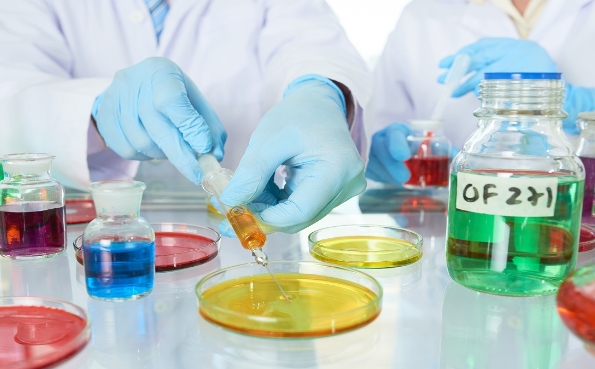Chemical agents in biology play a pivotal role in the intricate web of life, serving as molecular mediators that orchestrate essential processes within living organisms. From signaling molecules that regulate cellular communication to enzymatic catalysts that drive biochemical reactions, these agents are the building blocks of life's complexity. In this article, we delve into the multifaceted world of chemical agents in biology, exploring their diverse functions, mechanisms, and significance in various biological contexts.
- Signaling Molecules: The Language of Life
In the realm of biology, communication is key. Signaling molecules, such as hormones, neurotransmitters, and growth factors, act as chemical messengers, transmitting information between cells and coordinating physiological responses. From the intricate dance of neurotransmitters in the brain to the hormonal symphony orchestrating growth and development, these molecules regulate processes ranging from metabolism and reproduction to immune responses and behavior. - Enzymes: Nature's Catalysts
Enzymes, the molecular workhorses of biology, are specialized proteins that facilitate biochemical reactions. They lower the activation energy required for a reaction to occur, enabling life-sustaining processes to proceed at a rapid pace. From breaking down food in the digestive system to replicating DNA during cell division, enzymes are indispensable in maintaining the delicate balance of biological systems. - Antibodies: Guardians of Immunity
In the realm of the immune system, chemical agents known as antibodies play a crucial role in defending the body against pathogens. These specialized proteins recognize and bind to foreign substances, such as bacteria or viruses, marking them for destruction by other immune cells. Antibodies exhibit remarkable specificity, enabling the immune system to mount targeted responses and develop immunity against specific pathogens. - Pharmacological Agents: Unlocking Therapeutic Potential
Chemical agents in biology extend their reach beyond natural processes, finding applications in medicine. Pharmacological agents, including drugs and therapeutic compounds, interact with specific molecular targets in the body to modulate biological functions. From pain relief and disease treatment to targeted therapies and precision medicine, these agents have revolutionized healthcare and continue to drive advancements in medical research. - Environmental Impacts: Chemical Agents and Ecosystems
Chemical agents in biology also have profound implications for the environment. Pesticides, pollutants, and other synthetic compounds can disrupt ecological balance and impact the health of organisms. Understanding the interactions between chemical agents and ecosystems is crucial for mitigating environmental risks and developing sustainable practices that safeguard biodiversity and ecological integrity.
Conclusion:
Chemical agents in biology are the intricate threads that weave the tapestry of life. From the subtle signaling molecules that orchestrate cellular communication to the powerful enzymes that drive biochemical reactions, these agents shape the complexity and functionality of living organisms. By unraveling the mechanisms and significance of chemical agents in biology, we gain a deeper appreciation for the remarkable intricacies of life and unlock new possibilities for scientific exploration, medical advancements, and environmental stewardship.

